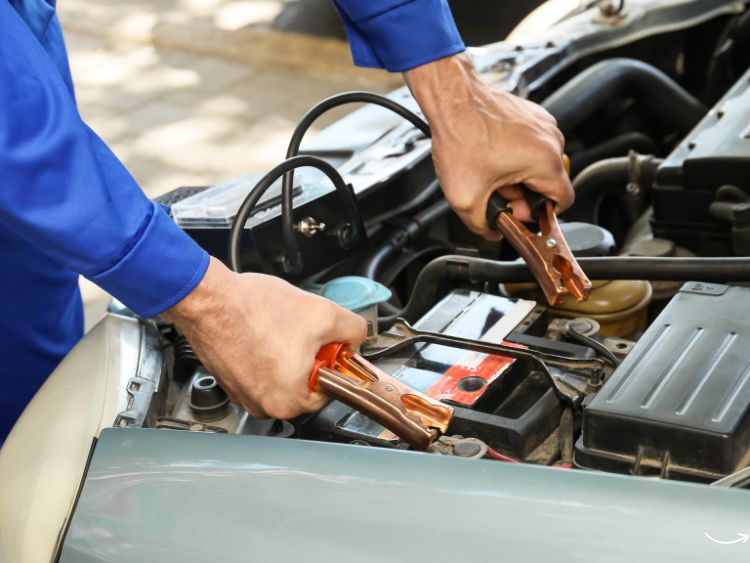Ever had that sinking feeling when your car won’t start? Ugh, it’s the worst, right? We’ve all been there. One minute, you’re ready to hit the road, and the next, you’re stuck with a dead battery. That’s where a car battery warranty comes into play. It’s like having a superhero in your glove compartment, ready to save the day when your battery decides to give up the ghost. In this guide, we’ll dive deep into everything you need to know about car battery warranties. We’ll cover the types, what they include, how to make a claim, and some pro tips to keep your battery in tip-top shape.
What is a Car Battery Warranty?
A car battery warranty is a promise from the manufacturer or retailer that the battery will perform as expected for a certain period. If it doesn’t, they’ll replace or repair it at no extra cost to you. Think of it as a safety net for your peace of mind.
Types of Car Battery Warranties
- Free Replacement Warranty: This type offers a full replacement if your battery fails within a specified period, usually between one to three years. No questions asked!
- Pro-Rated Warranty: After the free replacement period, a pro-rated warranty kicks in. Here, you’ll get a partial refund or credit towards a new battery based on how long the original battery lasted.
Focus Keyword: Car Battery Warranty
Why You Need a Car Battery Warranty
Peace of Mind
With a car battery warranty, you won’t have to worry about unexpected battery failures. It’s like having a backup plan ready to roll when you need it most.
Financial Savings
Replacing a car battery can be expensive. A warranty helps offset these costs, saving you money in the long run. You wouldn’t want to spend your hard-earned cash on a new battery every year, would you?
Reliability
Warrantied batteries are often of higher quality, as manufacturers stand behind their products. This means fewer breakdowns and more reliability on the road.
How to Choose the Right Car Battery Warranty
Length of Coverage
Look for a warranty that offers a good balance between the free replacement and pro-rated periods. A longer free replacement period is generally better.
Coverage Details
Make sure to read the fine print. Some warranties cover only manufacturing defects, while others may cover wear and tear. Knowing what’s covered can save you from nasty surprises.
Manufacturer Reputation
Stick with well-known brands that have a solid reputation. These companies are more likely to honor their warranties and provide better customer service.
Pro Tip: Check the Warranty Card
Always check the warranty card or manual that comes with your battery. It contains essential details about the terms and conditions of your warranty.
How to Make a Warranty Claim
Step 1: Identify the Problem
If your car battery is acting up, check if it’s still under warranty. Look for the purchase date and warranty period on your receipt or warranty card.
Step 2: Contact the Manufacturer or Retailer
Reach out to the place where you bought the battery or the manufacturer. Provide them with details about the battery and the issue you’re facing.
Step 3: Follow Instructions
The company will guide you on the next steps. You may need to bring the battery to an authorized dealer or send it back for inspection.
Step 4: Replacement or Repair
If your claim is approved, you’ll get a replacement battery or a repair, depending on the warranty terms. Simple as that!
FAQs
What is covered under a car battery warranty?
Most warranties cover manufacturing defects and sometimes wear and tear. They don’t typically cover damage due to misuse or improper installation.
How long do car battery warranties last?
Warranties can last anywhere from one to five years, depending on the type and brand of the battery.
Can I transfer my car battery warranty to a new owner?
Some warranties are transferable, but it’s best to check with the manufacturer for specific details.
Do I need a receipt to make a warranty claim?
Yes, a receipt is usually required to prove the purchase date and validate the warranty claim.
Tips for Maintaining Your Car Battery
Regular Inspections
Check your battery regularly for signs of wear, corrosion, or damage. A quick inspection can save you from sudden failures.
Clean the Terminals
Dirty or corroded terminals can affect battery performance. Keep them clean and tight to ensure a good connection.
Avoid Short Trips
Frequent short trips can prevent your battery from fully charging. Try to take your car for longer drives occasionally.
Turn Off Electronics
Make sure to turn off lights, radio, and other electronics when the engine is off to avoid draining the battery.
Conclusion
A car battery warranty is more than just a piece of paper; it’s your ticket to worry-free driving. By understanding what it covers, how to choose the right one, and how to make a claim, you can ensure you’re never left stranded with a dead battery. So, next time you’re in the market for a new battery, don’t just look at the price tag. Consider the warranty and what it offers. It could save you a lot of hassle down the road. And remember, a little maintenance goes a long way in keeping your battery, and your car, running smoothly.
Authoritative Links
- https://www.consumerreports.org/car-batteries/how-long-do-car-batteries-last-a4655877996/
- https://www.batteriesplus.com/product-articles/automotive/car-and-truck-battery-replacement-guide
- https://www.popularmechanics.com/cars/how-to/g212/4236840/
- https://www.dummies.com/article/technology/automotive/care-repair/automotive-maintenance/how-to-take-care-of-your-car-battery-196841/
- https://www.autobatteries.com/en-us/battery-testing-and-maintenance



